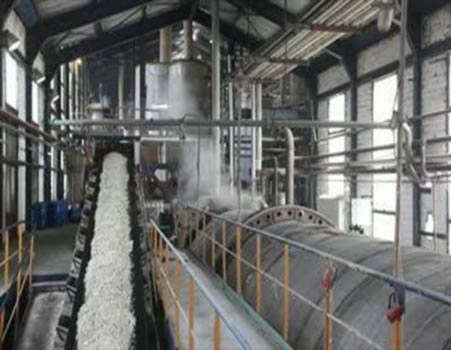In doing this, the National Sugar Development Council (NSDC) is enforcing compliance from Dangote Sugar, Golden Sugar and BUA who are they pioneer sugar companies that are presently undertaking government initiative “Backward Integrated Programme (BIP)” to source raw sugar locally.
Speaking in Abuja yesterday, the Executive Secretary of NSDC, Latif Busari while revealing new guidelines for BIP Operators stated that they (operators) are now require to submit their requests for quota sugar allocation for the following year in December of the preceding year.
“Year 2017 allocation shall be the last in which sugar allocation shall be based on the old criteria including market/share refinery capacity. As from 2018 and henceforth, allocation shall be strictly based on quantitative verified improvement in performance.
He disclosed that Sugar Road map Implementation Committee (SURMIC) and Sugar Industry Monitoring Group (SIMOG) are expected to conduct quarterly monitoring of all BIP projects. Outcome of each monitoring exercise will be forwarded to all operators with copies sent to the NSDC and the Office of the Honourable Minister, Ministry of Industry, Trade and Investment.
Giving key performance indicators weigh to BIP operators, Busari highlighted that “to ensure compliance, government has also put in place sanctions for poor BIP performance. Any operator that fails to achieve the performance target for the year, based on its BIP commitments, as released by the Joint Harmonisation meeting, shall be penalised for poor performance with reduction in its quota commensurate with its performance scores”.
“Scores by operators shall be in percentages and an operator shall be allocated the exact percentage of its score in the year’s projected allocation. There will also be sanctions for quota infringement by any of the BIP operators. Any operator that abuses the allocated quota through excess importation shall pay for the excess sugar importation calculated on the extant tariff indicated in the NSMP, for that period or year and not at the concessionary tariff”.
The ES noted that erring operator must pay the duty penalty for excess importation before it can be allowed by the Nigerian Customs Service to discharge its raw sugar cargo. Stating that the NSDC also reserves the right to recommend additional sanction if the above appears not effective in ensuring compliance.
It is hoped that these measures, if adopted and strictly implemented shall bring some sanity to the implementation of the sugar BIP programme and enhance the performance of operators.
It will be recall that the Federal Government had, following the official take-off of the Nigerian Sugar Master Plan (NSMP) in January, 2013 began the implementation of the Sugar Backward Integration Programme.
A total of three refineries were approved as BIP operators and were made to sign formal commitments detailing a number of indicators by which their performance will be measured.
As part of the arrangement, raw sugar quotas at the concessionary tariff of 5 percent Duty and 5 percent Levy was to be allocated to operators on the basis of performance of their BIP projects and as incentive to encourage operators to plough back profits to their BIP projects.
In addition, the concessionary tariff was to last for 3 years in the first instance. Operators’ performance was to be assessed by two special committees set up by the NSMP namely; SURMIC (Sugar Roadmap Implementation Committee) and SIMOG (Sugar Industry Monitoring Group).
In line with earlier agreements and conditions as contained in Backward Integration Programme (BIP) guidelines.
The Federal Government after a thorough assessment of the individual performances of the operators between 2013-2016 has deemed it necessary to introduce new guidelines and benchmarks for raw sugar allocation to operators of the BIP.
Information made available by the NSMP implementing agency, the National Sugar Development Council (NSDC) at the end of the NSMP MID TERM REVIEW meeting recently, indicates that the general performance of operators was below average, a situation the Federal Government isn’t comfortable with. The Government has also realized that the bane of the current strategy is that past quota allocation has not been strictly based on BIP performance and the incentive has not been effectively utilised in getting operators to improve performance in their BIP implementation.







